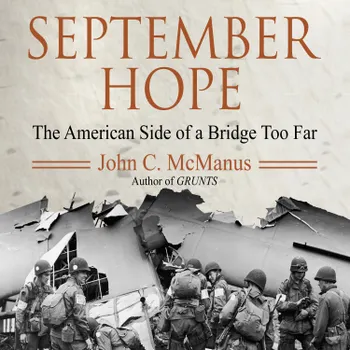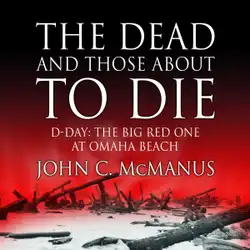In September Hope, acclaimed historian John C. McManus explores World War II’s most ambitious invasion, an immense, daring offensive to defeat Nazi Germany before the end of 1944. Operation Market-Garden is one of the war’s most famous, but least understood, battles, and McManus tells the story of the American contribution to this crucial phase of the war in Europe.
August 1944 saw the Allies achieve more significant victories than in any other month over the course of the war. Soviet armies annihilated more than twenty German divisions and pushed the hated enemy from Russia to deep inside Poland. General Eisenhower’s D-Day Invasion led to the liberation of France. Encouraged by these triumphs, British, Canadian and American armored columns plunged into Belgium, Holland and Luxembourg. The Germans were in disarray, overwhelmed on all fronts, losing soldiers by the thousands as Allied bombers pulverized their cities. For the Third Reich it seemed the end was near. Rumors swirled that the war would soon be over and that everyone would be home for Christmas.
Then came September, and Holland.
On September 17, the largest airborne drop in military history commenced—including two entire American divisions, the 101st and the 82nd. Their mission was to secure key bridges at such places as Son, Eindhoven, Grave and Nijmegen until British armored forces could relieve them. The armor would slash northeast, breech the Rhine and go wild on the north German plains. However, the Germans were much stronger than the Allies anticipated. In eight days of ferocious combat, they mauled the airborne, stymied the tanks and prevented the Allies from crossing the Rhine.
For the first time, using never-before-seen sources and countless personal interviews, September Hope reveals the American perspective on one of the most famous and decisive battles of World War II.


